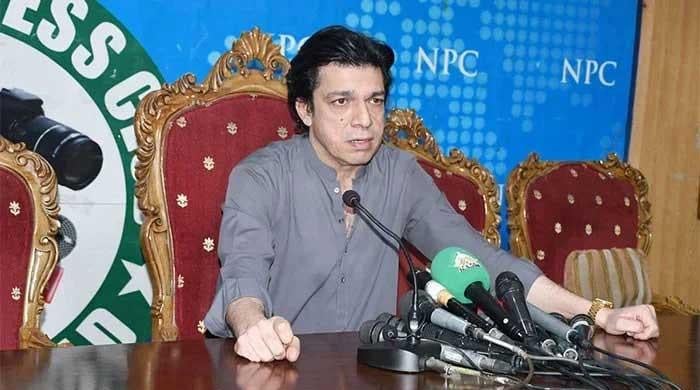This 12-year-old Aitchisonian is a published author
Only 12, Faizan Aslam Soofi has authored and self-published a 40,000-word fiction, titled 'Instrumental Kings'
October 24, 2017
In 2012, Aiman Waheed, an impressive nine-year-old from Lahore, launched a writing career and simultaneously made history in Pakistan as the youngest novelist.
Now, Faizan Aslam Soofi is following those tiny footsteps. Only 12, Soofi has authored and self-published a 40,000-word fiction, titled “Instrumental Kings”.
The young boy began writing and reading at an early age. His teachers at Aitchison College, Lahore, describe him “as an impeccable student.” They discovered his talent when he was 8-years-old, busy writing short poems in class.
Besides being available in Pakistan, the novel is selected to be stocked at international libraries, including that of Harvard University, Colombo University and the Library of US Congress.
Geo.tv sat down with the author to talk about his process of writing and future plans. Excerpts:
How did the idea of this novel come to you?
Instrumental Kings is actually my fourth book, not my first. I have another one titled Instrumental Queens. I started writing novels when I first got my Dell Laptop, which was somewhere around when I was nine.
Tell us about the plot:
It is a sort of an urban fantasy. Newt Wrathbone, an orphan who moves to Seattle, narrates the story. A year after his arrival, an awful disease known as Ravannah begins to spread, which turns the locals into bloodthirsty vampires. As he battles against the infection that is taking over his town, a mystery is unraveled related to a world full of darkness that only Newt can destroy.
The book does draw several characters from Greek and Egyptian mythology. I tried to swing the narration between real-life and fantasy.
When was the Instrumental Kings published?
I sent it for publication before my thirteenth birthday.
What’s next?
I am now working on a trilogy, Instrumental Gods, which should be out by the end of the year.
Here is an extract from Soofi’s earlier work, Instrumental Queen:
“Black was her favourite colour. She loved it firstly, because she loved the silent nights in her village punctuated by the chirping of the crickets, and she loved looking at the sky, the stars equidistant from each other. She had learnt that it was very rare for the stars to be equidistant. Secondly, because darkness was so silent that she could think of new ideas and new things in abundance, without someone reading her thoughts by reading her face.”









